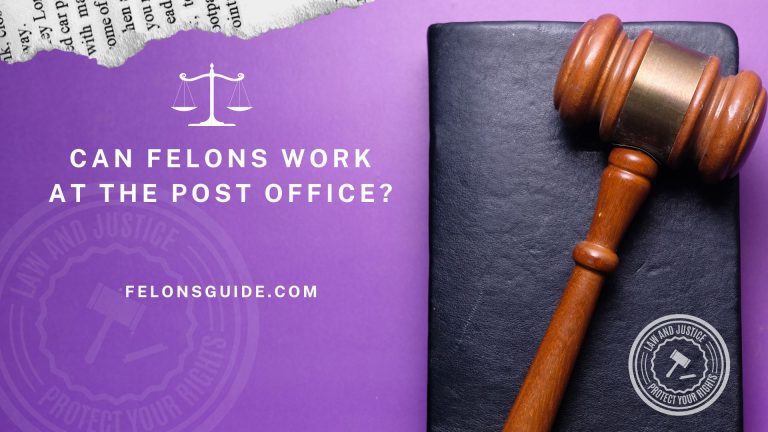Can a Felon be a Nurse? Is it Really Possible?
Can a Felon be a Nurse? Is it Really Possible? – Becoming a nurse is a noble profession that requires a lot of dedication, hard work, and empathy toward patients. However, this career path may not be accessible to everyone, especially to those who have a criminal record. People who have committed a felony may wonder if they can still pursue their dreams of becoming a nurse. This article explores the perplexing question of whether a felon can be a nurse, examining the possibilities and complexities of the situation.
Can a Felon be a Nurse?
The short answer is that it depends on the state and the nature of the felony. In general, most states allow felons to obtain nursing licenses, but the process can be complicated and arduous. The nursing board may conduct a background check and consider the severity of the felony and how long ago it occurred. Factors like rehabilitation efforts and character references may also be taken into account. Here are some key factors to consider:
State Regulations:
Each state has its own regulations regarding nursing licensure for felons. Some states are more lenient than others, while some have more stringent requirements. For example, California and New York have relatively strict regulations, while Texas and Florida are more lenient.
Nature of Felony:
The type of felony committed can also impact the likelihood of obtaining a nursing license. For example, a felony related to drug abuse may be more challenging to overcome than a non-violent felony like embezzlement. The nursing board may consider whether the felony conviction involved violence or a sexual offense, which could affect the individual’s ability to work with vulnerable patients.
Time Since Conviction:
The amount of time that has elapsed since the conviction can also play a role in the nursing board’s decision. Some states have a waiting period before felons can apply for nursing licenses, while others may consider the length of time since the conviction when making a decision.
Rehabilitation Efforts:
The nursing board may also consider whether the felon has made efforts to rehabilitate themselves since the conviction. This could include attending counseling or therapy, completing a drug or alcohol rehabilitation program, or volunteering in the community.
Character References:
Character references from employers, colleagues, or community leaders can also be important in convincing the nursing board that the felon is a good candidate for licensure. These references can attest to the individual’s character, work ethic, and ability to work with others.
Background on Criminal Convictions and Nursing
The issue of criminal convictions and nursing is a complex and sensitive topic that has received significant attention in recent years. Nursing is a profession that requires a high level of responsibility and trust, and as such, many states have strict regulations in place regarding criminal history and licensure.
In general, individuals with criminal convictions are not automatically barred from pursuing a career in nursing. However, the severity and nature of the offense can play a significant role in determining eligibility for licensure. Nursing licensing boards typically conduct criminal background checks as part of the licensure process and may deny licensure or impose restrictions based on the results of these checks.
Felony convictions, in particular, can present significant challenges for individuals seeking to become nurses. Felonies are serious offenses that often involve violence, fraud, or other types of criminal activity. As such, nursing licensing boards may view felony convictions as evidence of a lack of moral character or a potential threat to public safety.
Despite these challenges, it’s important to remember that a felony conviction does not necessarily disqualify an individual from pursuing a career in nursing. In many cases, individuals with felony convictions are able to obtain nursing licenses after demonstrating their commitment to rehabilitation and good character.
Also Read: Can a Felon Go to a Shooting Range? Understand What Law Says
How Can Felons Become Nurses?
Felony convictions can present significant challenges for individuals seeking to become nurses, but it’s important to remember that it is possible to overcome these obstacles and pursue a career in nursing. Here are some steps that felons can take to become nurses:
- Be Honest About Your Criminal History: Nursing licensing boards require applicants to disclose any criminal convictions on their licensure applications. It’s important, to be honest, and upfront about your past and provide any necessary documentation or explanations. Failing to disclose a criminal history can result in automatic denial of licensure.
- Demonstrate Rehabilitation and Good Character: Nursing licensing boards consider a variety of factors when reviewing licensure applications, including the severity and nature of the offense, the amount of time that has passed since the conviction, and any evidence of rehabilitation or good character. Providing letters of recommendation, completing counseling or rehabilitation programs, and volunteering or working in healthcare settings can all help demonstrate your commitment to rehabilitation and good character.
- Seek Legal Representation: Felons seeking to become nurses may benefit from the assistance of a skilled attorney who is familiar with nursing licensure regulations and the appeals process. An attorney can help ensure that your rights are protected and that you are presenting the strongest possible case to the nursing licensing board.
- Consider Alternative Career Paths: While nursing may be a desirable career path for felons, it’s important to remember that there are many other professions and trades that offer opportunities for individuals with criminal records. Exploring alternative career paths can help felons identify other options and find success in their chosen field.
Factors Affecting Eligibility for Licensure
The process of obtaining a nursing license with a criminal history can be complicated and challenging, with many factors influencing eligibility for licensure. Here are some of the most important factors that nursing licensing boards consider when reviewing licensure applications from individuals with criminal convictions:
Severity and Nature of the Offense: Nursing licensing boards are most concerned with offenses that involve violence, fraud, or other types of criminal activity that may pose a risk to public safety. Felony convictions are generally viewed as more serious than misdemeanor convictions and may present additional challenges for individuals seeking licensure.
Time Since Conviction: Nursing licensing boards may consider the amount of time that has passed since the conviction when reviewing licensure applications. In general, the longer the time period since the conviction, the less weight the board may give to the conviction in determining eligibility for licensure.
Rehabilitation and Good Character: Demonstrating rehabilitation and good character is a key factor in obtaining licensure with a criminal history. Nursing licensing boards may look for evidence of counseling, therapy, or other forms of rehabilitation, as well as evidence of community involvement or volunteer work.
Professional Conduct and Ethical Behavior: Nursing is a profession that requires a high level of professional conduct and ethical behavior. Nursing licensing boards may consider past disciplinary actions or complaints when reviewing licensure applications and may require applicants to complete additional training or education in ethics or professional conduct.
Evidence of Future Risk: Nursing licensing boards may also consider the potential for future risk when reviewing licensure applications from individuals with criminal convictions. This may include evidence of drug or alcohol abuse, mental health issues, or other factors that may increase the risk of professional misconduct or criminal behavior.
Also Read: Can a Felon be a Police Officer? We have it Answered!
FAQs:
Can a felon with a nursing license work in any healthcare facility?
No. Some healthcare facilities may have their own policies regarding hiring felons, even if the state allows them to obtain nursing licenses.
Can a felon with a nursing license work with children or the elderly?
It depends on the nature of the felony conviction. If the conviction involved violence or a sexual offense, it may be challenging to work with vulnerable populations.
Will my felony conviction prevent me from becoming a nurse forever?
Not necessarily. The nursing board may consider the severity of the felony, the length of time since the conviction, and rehabilitation efforts when making a decision.





